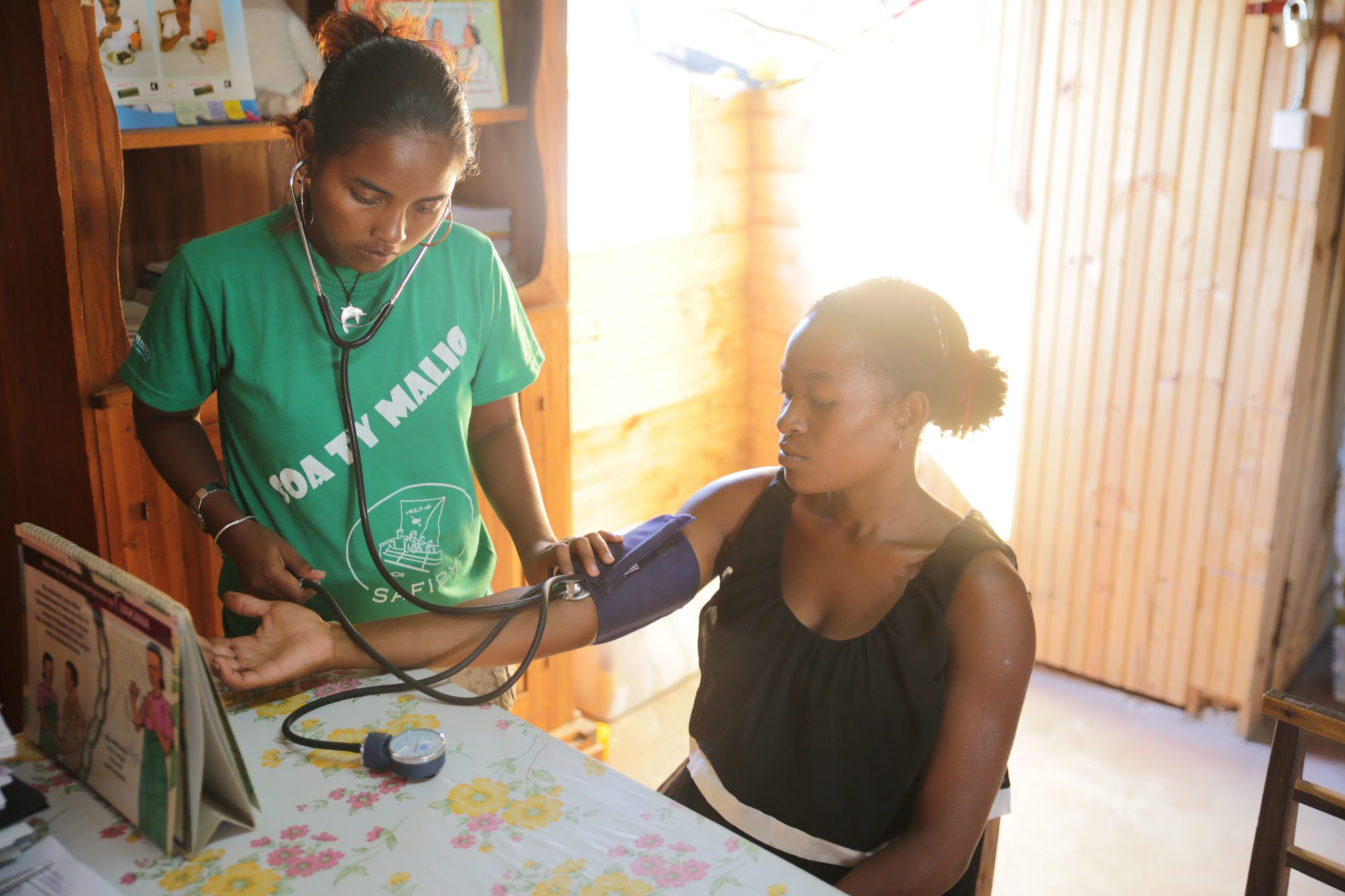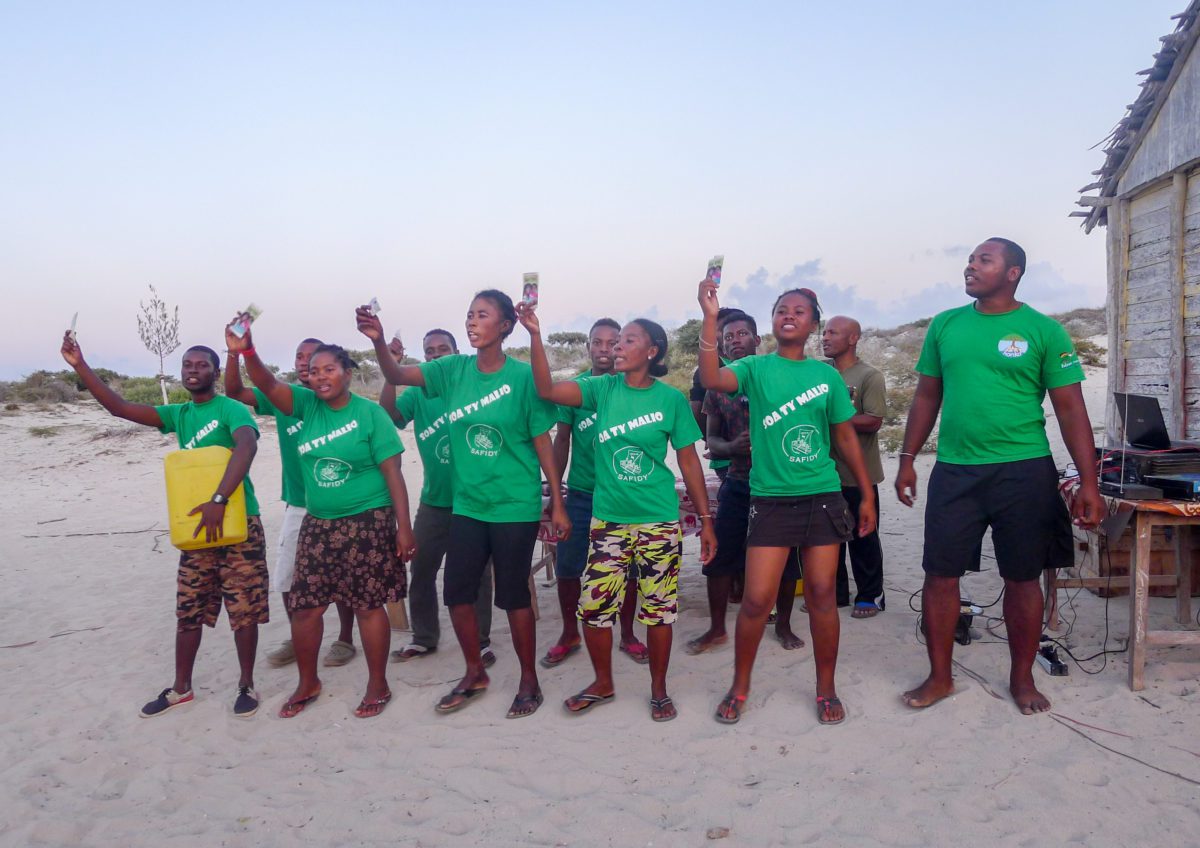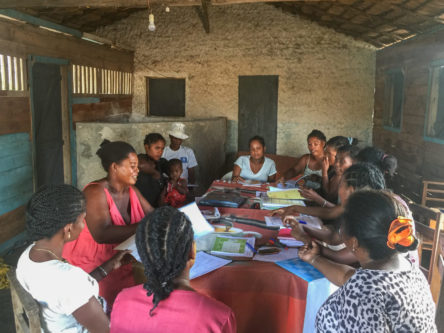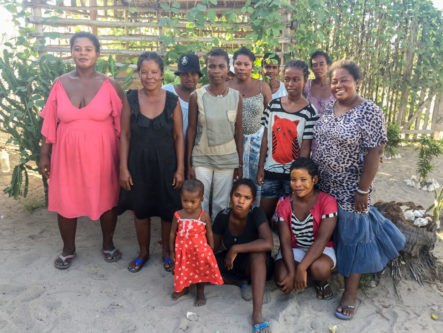Before we didn’t have family planning, but now we can plan our births and become involved in other activities.
– Fanja, Community Health Worker, Ankindranoke
Sitting around a table in the coastal village of Tampolove, southwest Madagascar, with a warm sea breeze providing little respite from the dry heat, it’s evident how far removed we are from the rest of the world. Having journeyed for several hours through thick spiny forest to get here from the nearest large town, zebu carts are more common than the 4×4 that dropped us off. Many health services in this isolated region are provided by local women trained as Community Health Workers (CHWs), and when we met with them recently for one of their monthly review meetings, it wasn’t surprising that most of them hadn’t heard how their lives and their work could be impacted by the reinstatement of the Mexico City Policy (also known as the Global Gag Rule). This policy from the United States government blocks US federal funding for non-governmental organisations that provide abortion counselling or referrals, advocate to decriminalise abortion or expand abortion services.
While hundreds of thousands of people marched in Washington DC and around the world in January, millions of other women across the globe remained silent. Not silent from indifference, but silent because they were unaware that this far-reaching policy change has the potential to take away their basic right to family planning choices.
Many coastal communities that work with Blue Ventures in Madagascar are involved in our Safidy community health programme (Safidy means “the freedom to choose” in Malagasy), which is an integral part of our holistic approach to conservation, combining community-based reproductive and other health services with locally-led marine resource management initiatives. In the months following the reinstatement and expansion of the Mexico City Policy, the Safidy teams in our remote programme sites along Madagascar’s west coast spoke with women to hear once again about the various changes and opportunities that family planning is bringing to their lives.
Listening to the CHWs, it quickly became apparent that the Global Gag Rule stands to do much more than restrict access to family planning choices for millions of people across the world…
Among the testimonies that we received, it was those who work closest with our Safidy programme, the CHWs, who gave some of the most passionate responses. Listening to their voices, it quickly became apparent that the Global Gag Rule stands to do much more than restrict access to family planning choices for millions of people across the world: it also fundamentally threatens the foundations of community-based healthcare, as without access to family planning options, many CHWs would not have had the time to develop their skills and serve their communities.
Indeed, sitting around a table in Tampolove hearing from these inspiring women made me realise that this policy change is going to obstruct much more than access to reproductive health services. My concerns had previously centred on community members as a whole and the imminent curtailment of their right to family planning choices, but I hadn’t thought about the obvious: many of the CHWs who work with Blue Ventures are family planning users themselves! Family planning opened the door for these women to choose the number and spacing of their births freely, thereby enabling them to grasp opportunities to develop their skills as health service providers and ultimately engage in all of the amazing things that they do to serve their communities today.

Photo: Gabriel Diamond
CHWs are the leaders and champions of our Safidy programme because of the vital day-to-day work that they do in the heart of their communities: offering family planning information and counselling to ensure that their clients can make free and fully informed choices about their reproductive health, providing access to short-acting contraceptive options and referring for long-acting or permanent contraceptive methods, offering antenatal and postnatal education, promoting use of facility-based birthing in local public health centres, managing common childhood illnesses such as malaria and respiratory infections, and promoting good sanitation and hygiene practices.
CHWs are the leaders and champions of our Safidy programme because of the vital day-to-day work that they do in the heart of their communities.
I started to wonder, would these formidable CHWs have been able to develop their wide-ranging competencies (thanks to family planning service delivery and CHW training collaborations with several USAID-funded health partners) if the Mexico City Policy had been in place during the evolution of our Safidy programme? And how will its reinstatement impact their continued professional growth and ability to provide access to quality healthcare over the coming years?
In addition to allowing them to develop as CHWs, family planning has enabled these women to become involved in local fisheries management initiatives, aquaculture enterprises and mangrove conservation efforts supported by Blue Ventures. CHWs often participate in Village Outreach Tours, and they’re on the frontline when speaking with communities and addressing pertinent health questions or concerns. Family planning was the entry-point for many of these women to become the main healthcare providers in their remote villages, and to grow as leaders in their communities.

Photo: Njaka Raveloson
By curtailing access to reproductive health services, we’re coming to see that the Global Gag Rule is going to take away much more than family planning choices: it’s set to restrict opportunities for women to achieve their goals, to make contributions as bold leaders and wise decision-makers, to take an active role in the development of their communities and the management of their natural resources, to train and serve as trusted healthcare educators and providers, and to ensure that families can continue to access health services that are their human right.
Collaborations between health and environmental organisations are proving to be a powerful and highly cost-effective mechanism for supporting community-based healthcare in remote and underserved areas.
It’s clear that there’s going to be significant challenges ahead for the global health community as a result of the Global Gag Rule, with a greater need for creative approaches and resourceful partnerships to ensure that progress towards addressing unmet health needs is not reversed. With this in mind, the cross-sector movement that we’re seeing flourish here in Madagascar offers hope: collaborations between health and environmental organisations are proving to be a powerful and highly cost-effective mechanism for supporting community-based healthcare in remote and underserved areas, with environmental organisations leveraging their operational infrastructure and community-based presence to facilitate and enhance the work of health organisations that would typically struggle to reach such isolated zones. These partnerships are proliferating throughout the country, and it seems like the combined diverse funding bases of all of the organisations involved will make these collaborative initiatives more resilient to obstacles such as the Global Gag Rule than when any one of us tries to act alone.
After two days of meetings with the CHWs in Tampolove, I reflected on our conversations and their testimonies continued to resonate in my mind. I’m thankful to be working with such passionate women who are conscious of the impact of family planning in their own lives, and are motivated to lead their communities towards a better future. It’s their hard work and tireless smiles that drives us to continue our work with the Safidy programme, and to collaborate with our health partners to minimise the potential damage of this policy change to under-served communities.
Want to get involved with Blue Ventures and gain insight into our integrated health programme?
Sign up for your Medical Elective with us, or apply to be an Expedition Medic!



